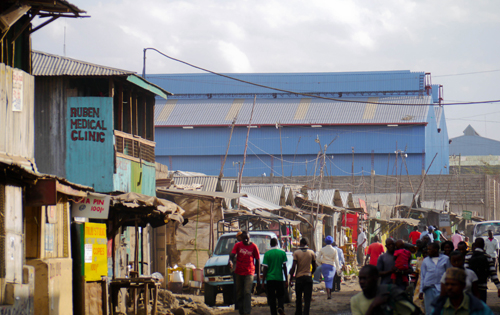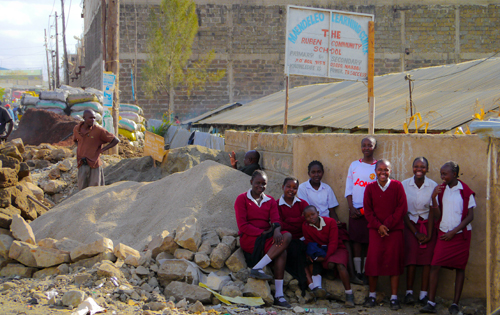
In the world's urban slums, the struggles of the "Bottom Billion" to live their lives and build their communities range from day-to-day survival to high-stakes strategy. Behind the exhausting daily scramble for food, water, shelter and other basic human needs, intense political, legal and institutional dramas are being played out -- partly in the shadows and partly in plain view.

These conflicts pit residents of informal settlements in cities across the globe against an imposing array of international investors, real estate speculators, technocrats and power brokers. Their arsenal includes vast political clout and mountains of capital backed with bulldozers, truncheons and guns; their arguments arrive wrapped in media-genic, Potemkin-village visions of a planified, perfected metropolis -- an imagined world where the poor fade blissfully away into a hypothetical high-rise paradise.
Between these mismatched players stand a host of anti-poverty practitioners -- NGOs, researchers and community-based organizations -- whose work aims to alleviate the daily struggles of the urban poor while, in principle, bringing a measure of reality to the debate over their communitites' future. The trick is to keep reality in view -- and to find ways of applying it, both in strategy and in day-to-day practice.
One such effort can be seen in a nitty-gritty, strategically critical battle unfolding in Nairobi, where Muungano wa Wanavijiji, a Kenyan partner of the Slum Dwellers International network, has been fighting in court to protect residents of an informal settlement called Mukuru kwa Reuben against eviction from land they've occupied for over 30 years.
Muungano's weapon of choice was Kenya's 2010 constitution. In a landmark lawsuit, its legal team sued a group of high-profile politicians -- including Kenya's ex-president, a presidential aspirant and prominent entrepreneurs -- on the community's behalf. If they won, the case would be one of the first to successfully leverage Kenya's new constitution to back a community's land claims.
In sharing its strategic approach to this entrenched problem -- a problem faced by the urban poor worldwide -- Muungano wa Wanavijiji has also helped to spotlight a new weapon in the arsenal of anti-poverty practitioners: The power of online networks to accelerate social change.

The importance of Muungano's lawsuit -- not just for Kenyans but for residents of informal settlements across the world -- was immediately clear to Katy Fentress, Nairobi community manager for the urb.im network, a global online community working for just and inclusive cities. Urb.im, a project of Dallant Networks and the Ford Foundation that launched in beta in 2012, connects anti-poverty practitioners in cities worldwide to surface problems and share solutions -- from innovations in urban farming to participatory urban design, from community mapping initiatives to examinations of Nairobi's endemic flooding and waste management crises -- in order to jumpstart the process of change.
The case revolves around a problem common to many informal settlements, in Nairobi and elsewhere: the shell game played by the powerful at the expense of the poor whenever title is unclear. Describing the history leading up to the June 2012 eviction threat, Fentress laid out Muungano's strategic claim that "the landlord's titles were no longer valid and that, under the current right to housing and sanitation clause in the constitution (the new version of which was ratified in 2010), these evictions were in fact illegal and could be challenged."
To Fentress and to the community, the case of Mukuru kwa Reuben and others like it offer valuable, actionable lessons that can be applied by practitioners around the world -- and usefully compared with related situations in other cities in the network:
- In Lagos, residents of Makako have challenged government evictions and demolitions that have displaced tens of thousands of people through litigation led by Felix Morka, Executive Director of the Social and Economic Rights Action Center (SERAC), which filed claims with local courts as well as with the Economic Community of West African States (ECOWAS). That approach allowed ECOWAS to advocate for Makoko residents to the World Bank, which has targeted the community under a200 million infrastructure development project to extend health care, access to water, electricity and solid waste management to slum communities -- worthwhile benefits, but tough for residents to enjoy if they no longer live there.
As for Mukuru kwa Reuben, residents' hopes remain high. But whatever the outcome of this litigation, its success in forcing politicians into court over illegal land allocations is a big step forward in the battle to combat land grabs and curb their impact on poor communities. What may be equally important is the example it provides to residents of other informal urban settlements and anti-poverty practitioners in cities all over the world.